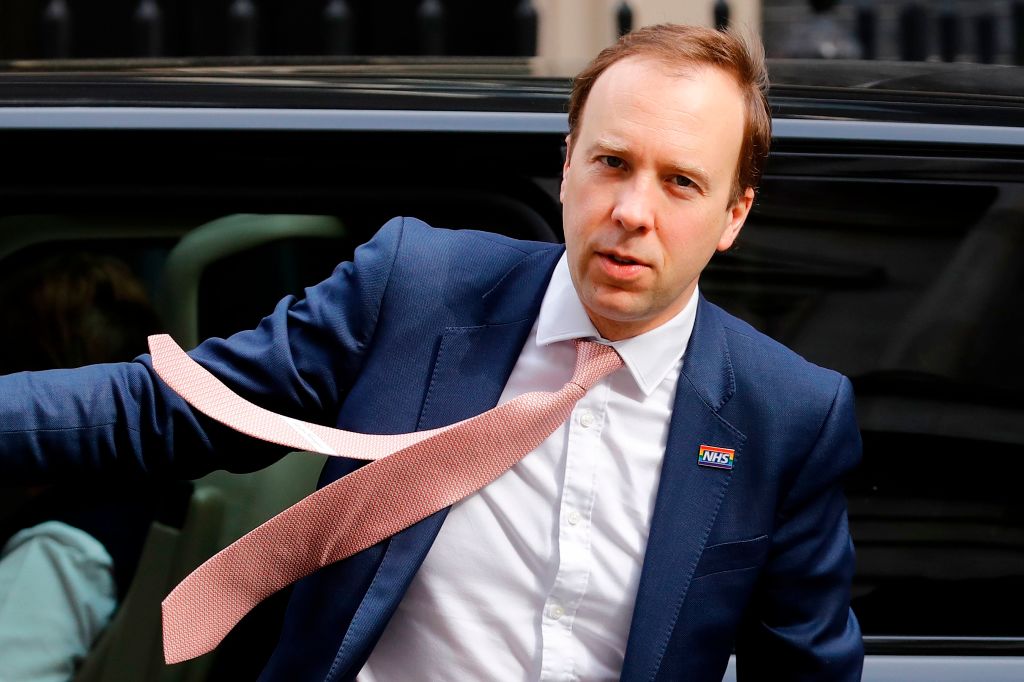It’s welcome news, of course, that dexamethasone can reduce mortality in people with moderate to severe respiratory complications due to Covid-19. But to hail it as a big breakthrough – as the Health Secretary Matt Hancock did this week – is a step too far. Perhaps next week, Hancock will be shouting about the use of paracetamol as a treatment for headaches.
Dexamethasone has been around for decades – which explains why it is relatively cheap and there is lots of it – and is already used widely for those suffering from respiratory distress. In other words, it is pretty much a standard treatment for those afflicted with symptoms similar to those caused by Covid-19. Our early experience of Covid-19 patients in intensive care showed a ‘hyper-immune’ response to the infection. It’s no surprise then that dexamethasone helps some patients. To look at the government announcement, you’d think that no medic had ever before thought of using steroids to treat Covid patients. In fact, steroids are a typical drug of choice for such situations. Using them on a severely-ill Covid patient would have been common sense to doctors. So while it is nice to have confirmation of its benefit (had the trial shown another result there would have been some serious head scratching) this is not a significant step in the fight against Covid-19. You don’t need to be a doctor to diagnose spin.
Don’t get me wrong: as a clinician and an investigator in clinical trials I appreciate the lengthy but vital contribution such studies make in the advancement of medicine. The cohesiveness and structure of the NHS lends itself to large trials in important areas, so it is not surprising the Recovery trial led by Oxford University paid off. But it is all too clear that a government which has come under intense pressure in recent weeks is keen to exaggerate the importance of this development. No wonder the Health Secretary, complete with NHS badge and mug, proclaimed the breakthrough on Twitter and one of the chief investigators from Oxford, professor Peter Horby, was one of the scientists on the podium at the Downing Street briefing on the day the result was announced. No point in being shy and retiring; remember, we are at war with an invisible foe so any victory is to be celebrated.
But it didn’t take long for medics familiar with dexamethasone to share their thoughts. ‘Tomorrow we will be approving paracetamol and penicillin’, one person tweeted back to Hancock.
As well as showing the government’s eagerness to cling on to any scrap of good news, this episode also exposed something else: that the disconnect between medical reality and the narrative often given in the Downing Street briefings is stark.
Watching the briefing on Tuesday felt surreal. We are told repeatedly of the importance of the current coronavirus restrictions. Yet this latest warning came alongside news that there had been only 267 Covid-19 confirmed cases that day in England. Make no mistake: this is obviously very concerning for those people involved and I wouldn’t seek to downplay this. But in the context of the NHS – and a country of 60 million people – this is frankly miniscule.
The inescapable fact is that the epidemic has basically collapsed, infections have fallen dramatically and, thankfully, so have deaths. The current cases are disproportionately led by care homes and hospital spread. Yes, a second wave is possible (although I think unlikely) and who knows: dexamethasone may yet have its day. But the health crisis we face now is not due to coronavirus and far more due to the health consequences of lockdown.
Throughout this whole crisis there has been much talk of war and battles against an invisible deadly enemy. To continue this narrative there is a need for victories to keep morale up and politicians and scientists on the front foot. Yet it’s a façade, rather like this week’s shouting from the rooftops about a medication which is already used around the world as standard treatment in this situation. The fact is that by retreating into our homes and closing large parts of the NHS in late March we surrendered to Covid-19. Not only that, we failed to protect the most vulnerable in doing so: people in care homes and those reliant on carers in the community.
Reflected glory can be sought from the positive trial of dexamethasone, but it can’t mask the excessive and preventable loss of life in the care sector, the fact we are still restricted in our actions and that many children are not at school. The virus is causing barely a few hundred admissions per day now, yet the strategy doesn’t seem to change. Perhaps we should ask Marcus Rashford to make a further call to Boris Johnson to allow us to now get on with our lives?
This article is free to read
To unlock more articles, subscribe to get 3 months of unlimited access for just $5








Comments
Join the debate for just £1 a month
Be part of the conversation with other Spectator readers by getting your first three months for £3.
UNLOCK ACCESS Just £1 a monthAlready a subscriber? Log in